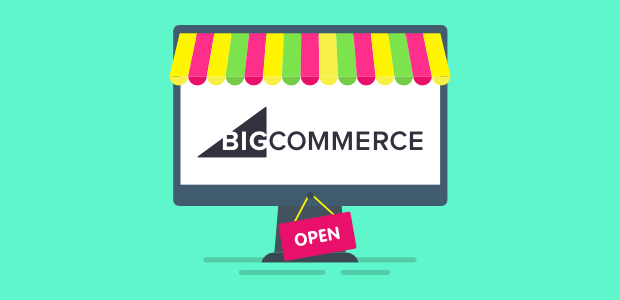The statistics expected the revenues from the eCommerce software market to reach $6.53 billion in 2021 so this huge figure means that enterprise eCommerce platforms are gaining traction in today’s business world. Also, why do companies use them, and how do you choose one? Hopefully, this article will be able to teach you about the top 4 list of enterprise software for eCommerce companies.
Sitecore Experience Commerce

Sitecore Experience Commerce, which was created by Sitecore is considered a pioneer in the world of CMS and a leader of Gartner’s Magic Quadrants for Web Content Management and Digital Experience Platforms. Therefore, it allows companies to create immersive, end-to-end shopping experiences.
As part of the all-around Sitecore Experience Cloud, Sitecore Experience Commerce is a holistic end-to-end ecosystem that combines capabilities for commerce, marketing, and content management.
- AI-based, best-in-class content personalization
- Personalized shopping experiences
- The support of omnichannel commerce and content delivery
- Single-platform content management
- Consistent brand experiences across a variety of channels, endpoints, and sites
- Helpful community and customer support
However, Sitecore requires significant programming expertise, while seasoned developers are as valuable as gold.
Magento Commerce

Acquired in 2018 by Adobe, Magento Commerce is an all-in-one, renowned PaaS solution that facilitates online shopping. Moreover, the solution is open-source, and a huge developer community enables constant improvement, a wide variety of enterprise-level solutions for every need and budget, and customization flexibility.
This enterprise eCommerce platform provides the following business benefits:
- Omnichannel B2B and B2C commerce
- Personalized customer journeys and shopping experiences
- Wide customer reach via a variety of channels and touchpoints
- Endless built-in and extension-based customization possibilities
- Mobile and progressive web applications
- Single-platform multisite management
However, this platform has certain drawbacks:
- Extra costs on hosting, migrations, and security certificates
- Performance issues that intensify alongside solution scaling up
- Requires programming and designing experience
- Little customer support
BigCommerce

As the name suggests, BigCommerce provides a powerful solution for online commerce that allows companies to embrace a variety of business operations, both B2C and B2B. For its enterprise-level clients, the vendor has special treats that, as it promises, will turn visitors into loyal customers.
With BigCommerce, enterprises enjoy the following benefits:
- Headless commerce and content delivery
- Easy, intuitive content management in a WYSIWYG format
- Reliability during periods of high traffic and high uptime
- Wide-ranging functionality for online sales, such as quote management, bulk pricing, etc.
- Seamless integration with many applications, business software, and payment gateways
- The extensive network of partners and ready-to-help customer support
However, BigCommerce’s clients may face certain difficulties:
- Development expertise is required.
- There is a steep learning curve.
- Pricing is based on the volume of sales.
Shopify

Interestingly, Shopify is a perfect choice for enterprises that need a powerful and ready-to-use eCommerce solution. Indeed, the vendor has taken care of code, bandwidth, and security issues beforehand, and the solution can handle thousands of transactions per minute.
Shopify has the following advantages:
- A fully hosted eCommerce platform that is ready out of the box, with a wide variety of basic features
- Numerous extensions and plugins
- Omnichannel commerce
- Dedicated, 24/7, priority customer service
- The support of multiple sites and locations
- High stability and reliability
Shopify’s drawbacks are as follows:
- There is limited code and design flexibility as a company cannot create its design or modules from scratch; they are available only based on extensions.
- The final cost is difficult to calculate beforehand as pricing changes frequently and depends on the added functionality.
- There is limited B2B functionality.
Conclusion
In conclusion, as one can see from this selection of top enterprise eCommerce platforms, they all have much in common. Also, they allow businesses to create end-to-end enterprise eCommerce environments that make the most out of AI-based customer experience personalization and process automation. We hope, with this enterprise software for eCommerce companies, you will be able to start your own one.









